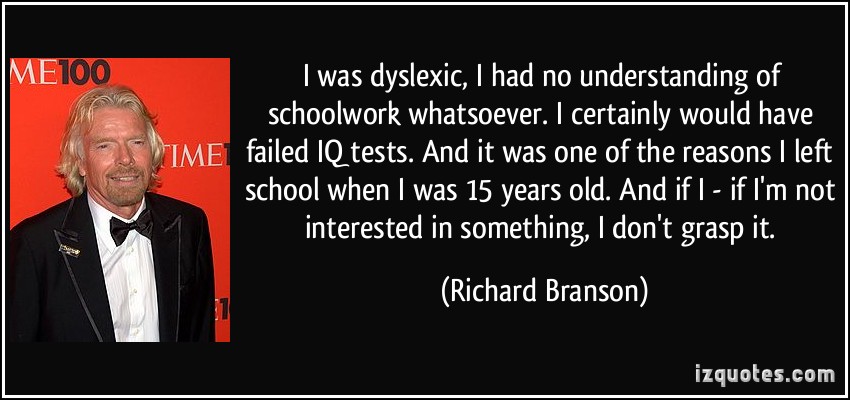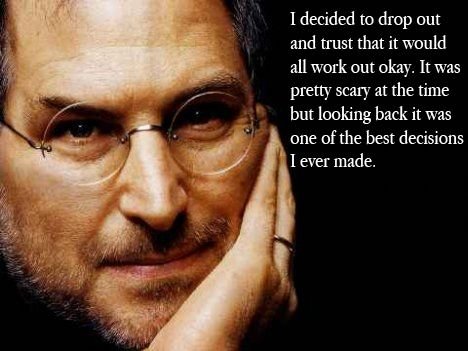Drop Out of High School to Succeed in Life, Part 2

This is Part 2 of a series. Go read Part 1! It's kind of foundational for what's to come in this post.
I am intimately familiar with the process of navigating life without a diploma. This is because I, myself, am a high school dropout. I withdrew from my Catholic high school in 2000, at the age of 17, a year and a half before I was to graduate. And, let me make this perfectly clear for the skeptics in the audience:
I do not regret dropping out of school one bit.
The choice was absolutely the right one for me. If I had to go back and make that choice again, knowing what I know now, I would still decide to leave high school, but I would make two minor changes to how I went about it:
- I would have done it sooner. Much sooner. Like, age 13, if I could have gotten my parents to agree. Better yet, if my parents would have consented to homeschool me when I begged them at age 8, that would've been even better.
- I would have immediately gotten my GED after leaving school (more about that later.)
Ideally, young adults would be able to choose whether or not to go to high school at all. I'm a major proponent of unschooling, especially for teenagers. Self-directed learners are smarter, more capable, and more confident than most high school graduates, and best of all, they retain the ability to think for themselves and critically analyze what "authorities" like the media tell them. And homeschoolers and unschoolers can pack more immersive and diverse learning experiences into a week than most high school students get in a year. If you're the parent of a high school aged child who is struggling academically, socially, or emotionally in school, I highly recommend that you pull them out and unschool them.

Now for the logistics of dropping out of high school.
Disclaimer: I live in the United States and always have. I don't know much about the education systems or job markets in other countries, so while the ideas in this post will be of interest to people regardless of geographic location, some of the specific information contained herein will be most useful to people living in the United States.
When kids and teenagers express a desire to leave the conventional schooling environment, a lot of well-meaning adults say things like:
You'll ruin your life.
You'll end up flipping burgers.
You won't be able to get into college.
You'll destroy your opportunities.
While I will readily admit that these negative effects have befallen many a high school graduate, I am here to tell you that it does not have to be that way. Many young adults choose to leave school out of a sense of desperation. They don't have a plan for what to do after they drop out, they just know that for their mental and emotional stability, they need to get away from that place. (If you can't relate, see Part 1 of this series for some of the reasons why a young adult might feel that way.) Their lack of a plan, compounded by the self-esteem crushing impact of having everyone they know tell them that they're now a failure for life, prevents them from taking hold of the reins of their life and changing it for the better.
On the other hand, there are many people who dropped out of high school, or never attended at all, and became wildly successful later on in life. People like Richard Branson, Quentin Tarantino, and George Foreman. Success has a lot more to do with your personality, goals, and drive than it does with your level of formal education.

The oft-repeated argument that being a high school dropout makes you instantly ineligible for 90% of jobs is a myth, at least in the United States. Many employers will not hire a person who has not completed their high school education--that much is true. But in every state, you can get your GED (which stands for General Equivalency Diploma) from a local community college. That GED takes as little as a week to obtain and is considered the equivalent to a high school diploma, both by employers and the government.
Here's how the GED works. You find your local GED office (almost every county in the country has one) and you take an initial placement test. The results of the test tell you what you need to study in order to pass the final exam to obtain your GED. For most people, this test will not be too hard. For a few, it will be a breeze. Once you've taken the placement test, the nice people at the GED office will supply you with study materials and even tutors if you need them. You'll study on your own time until you feel confidant you can pass, and then you schedule your final exam. It's that easy. After you pass, you receive a certificate in the mail to prove you're just as average as any high school graduate!
I mentioned above that if I had it to do over again, I would have obtained my GED immediately after leaving high school. What prevented me from doing so was a combination of things. First of all, I didn't know that the GED existed. And once I found out about it, I somehow formed the expectation that it would be just like going to school all over again. That belief stopped me from checking it out for a couple of years. When I finally decided to pursue a GED, I was 20 years old and it had been 3 years since I dropped out of school. I walked into the GED office and took their placement test, scored in the 99th percentile in three out of four subjects, was advised to spend some time studying algebra and geometry, and given some study materials to take home. I came back a week later and took my final exam, passing with flying colors. If I'd known it was that easy, I'd have done it a lot sooner.
(Right about now, some of you are probably thinking that if it is that easy, it must not prove that your education level is equivalent to a high school graduate's. But no, you're deluded. First of all, it's not that easy for everyone. I met some students at the GED center who had been studying for months to take their final exam. Plus, the Department of Education makes sure that the GED test evaluates the minimum knowledge that a person must have in order to graduate the twelfth grade. So, while the test may be easy for some people, it is no more easy for those same people than getting a high school diploma. Just a lot less time consuming.)
But what about getting into college?

Well, for one thing, I doubt that most people need to go to college. Think about it. Most college degrees are absolutely useless in the current job market. While some jobs require a certain level of education, most of them don't care whether you majored in English literature or underwater basket weaving. It's the degree itself that they want, to prove that you're just as average as everyone else. So why spend a gazillion dollars to get into an elite school, or even just a regular zillion to get into a nice state school?
There are all kinds of marketable skills you can teach yourself for little to no money. Things like coding, web design, foreign languages, investing, culinary skills, and video production can all be learned through online courses from Udemy, Coursera, or similar services. And if you really want to delve into traditional collegiate courses of study like Civil War Poetry or Chinese Civilization During the Ming Dynasty, you can do that for free online, too!
But if you're truly burning for a college degree, and as long as you're not aiming to become a doctor or a lawyer (career paths that you actually need specific postgraduate degrees for) why not take your GED, go down to the community college, and enroll in an Associate's degree program?
For as little as $500 per semester, you can learn a valuable trade--such as auto mechanics, cosmetology, bookkeeping, or hospitality management--at a community college in just two years.
And here's a little-known fact: you can enroll at a community college almost anywhere in the U.S. for a two year "university transfer program" that funnels you into a four year degree at a more prestigious college. While most four year colleges and universities will not accept freshman applicants with a GED, they will accept junior applicants with a two year Associate's degree from a community college.

If college is really important to you, it is perfectly feasible to drop out of high school, travel around Latin America for a year, buy a motorcycle in Argentina, get braces in Peru, come back, get your GED, enter community college, transfer two years later to a university, and spend less than you would have at a traditional four year institution, but end up with the same degree. If that's really what you want.
But there's no reason why you have to want a college degree. Instead of paying all that money and signing away four years of your life, you could instead become an entrepreneur. You don't need to prove your education level if you're your own boss. A lot of high school dropouts are naturally entrepreneurial. So instead of pressuring them to "finish high school", "go to college", "get a real job", we should instead be encouraging them to start a business at age 15.
Furthermore, we are shifting into an era in which college degrees are not going to be nearly as important as they once were. That's because our conventional education systems were designed to produce a very particular kind of worker: one who can sit still, take direction, and fill out forms accurately. The new economy does not value these skills so much. In the near future, it will be much more advantageous to have qualities like creativity and out-of-the-box thinking in order to succeed in the workplace. Our current education systems simply do not foster or nurture those qualities, and so high school diplomas and college degrees are going to become increasingly irrelevant. They will be seen as a complete waste of time and money for all but a few specific professions.
TL;DR: High school is not a necessary step on the path to success. With a little creativity and planning, you can drop out of school and still "make it" economically, while wasting far less time and money than your peers.

If you are now seized by an unshakeable urge to read more stuff I have written, try these:
Drop Out of High School to Succeed in Life, Part 2
Starr's Keys to Happiness: Care About What You Do
Starr's Keys to Happiness: Consciously Choosing Your Relationships
What if Some People Use Crypto for Evil?
Ode to the Taxation is Theft Meme

Hi, I'm Starr!
I believe all human interactions should be consensual.

Hi Leslie. This is a great post and so true. You absolutely do not have to go to college or university to become a success. The same can be said in the UK. Degrees are now so commonplace as to become worthless. Not only that but the level of politically correct brainwashing that adherents endure in the so called education system makes it a very negative experience. Life experience counts for a lot. Get out into the world and live it.
Sorry, Starr, not Leslie. My mistake.
Either is fine. :)
It does seem that the academic world is moving ever more resolutely away from the free exchange of ideas and toward some kind of militant echo-chamber.
Loving this series! I've been wondering how long the higher education bubble can keep swelling. So much debt and so much human suffering arises from people going after those degrees.
It will probably keep swelling until it is nationalized, and then it will swell some more, but people won't realize that it's still swelling because the effects will be one step removed from their pocketbooks.
Hi Leslie,
I'm very much of two minds on this. Having gone through high school the traditional way, and now I tend to look back over my career - I'm 59 now.
I was really smart in high school. I got consistent A's. I was often left out and ridiculed for that. But I am who I am and I stuck it out.
I have a solid career in software that took care of me all my life. But I never became a guy like Bill Gates, Steve Jobs, or Jeff Bezos. If I had to teach myself, instead of being a "goodie-good" high school student, I wonder what I would have done with that inate ability to get straight A's. Despite all, would I have flipped burgers for the next 40 years? Would I have the nerve to start a company with the next big thing? Or would I be where I am now?
These are pointless questions for me.
For you, I strongly feel that whatever is right, pursue it with all your heart.
Upvoted!
@joe.nobel
science fiction, fantasy, erotica why don't you stop by again and read some of my posts, I haven't heard from you in a while your comment and critique would be apprecaited no obligation to upvote
Yeah, there are definitely some people for whom school is a beneficial environment. And those people could get even more out of it if it weren't compulsory.
So agreed! I could have treated high school like college if there weren't two dozen monkeys in the back of the class that didn't want to be there.
Just shows you we need flexibility in the system. Maybe even an mentorship program of volunteer business people to guide kids like you who want to be entrepreneurs -- someone to show you how to put together a business plan, for example.
We all learn differently, schools generally expect everyone to learn in the same way, using the same teaching methods. This is so unrealistic, but all part of the bigger picture of making kids become submissive and placing them in the world where they are encouraged not to think for themselves and become more accepting of the way the world is. Great post @lesliestarrohara.
You're right. Every child should be free to learn in the way that suits them best.
Thank you for the comment, @trucklife-family!